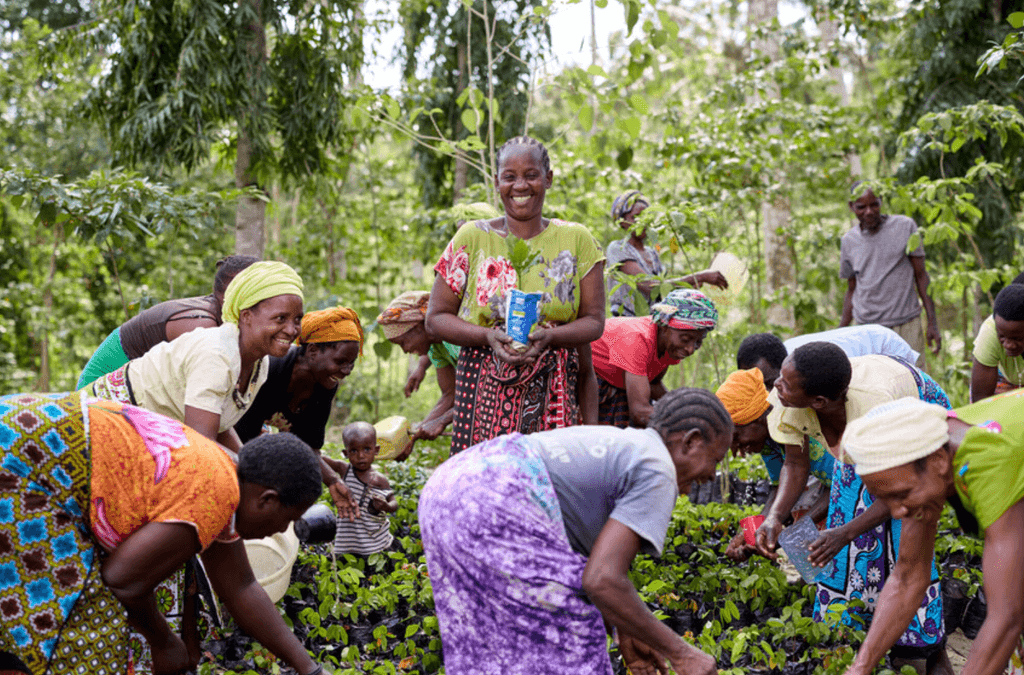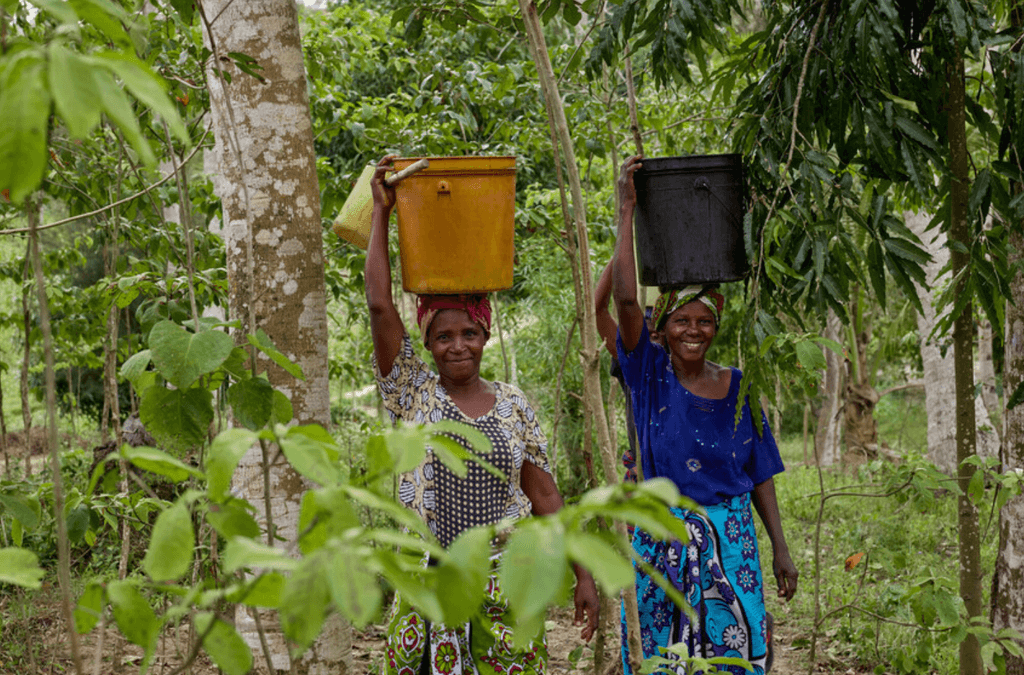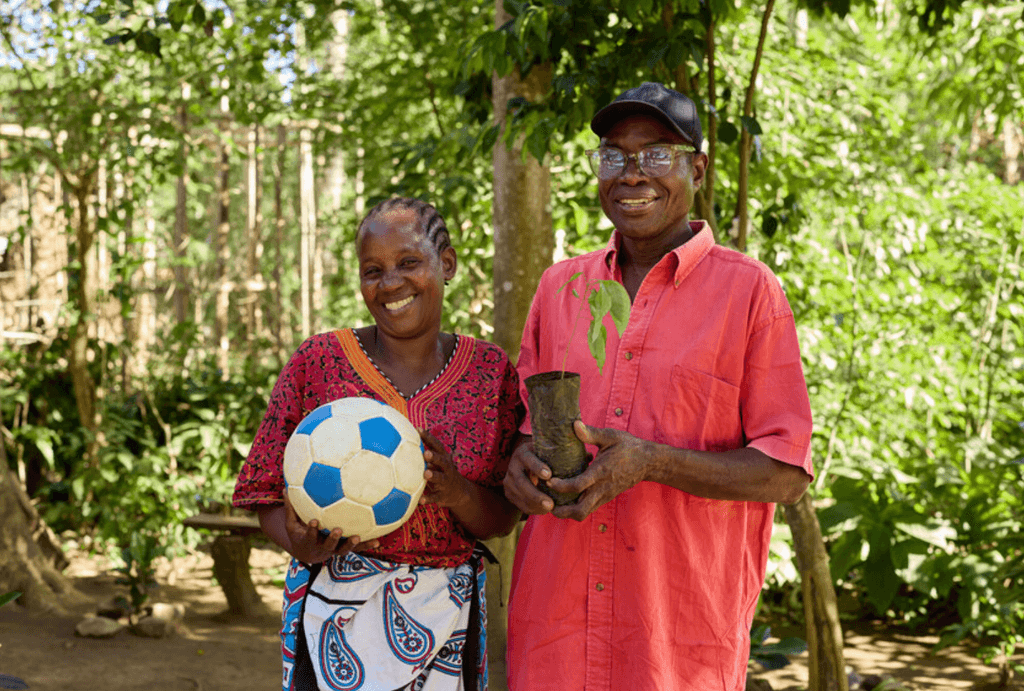Caroline’s quest to protect Kenya’s sacred coastal forests
Through tree planting and football, Caroline, a community leader is helping rebuild a section of the Sacred Mijikenda Kaya Forests in Kenya.

From childhood wanderer to community leader, Caroline is writing a new chapter for Kenya’s sacred Kaya Chonyi forest – one seedling and one football match at a time.
“Every tree here holds a story,” Caroline whispers, running her fingers along the bark of a towering baobab tree in the Kaya Chonyi forest on Kenya’s eastern coast. “My elders taught us this forest isn’t just land. It’s our home, our history.”
As a child, Caroline played hide and seek among these trees, guided by elders’ warnings about sacred boundaries and ancestral spirits. She recalls these wise guardians disappearing into the forest to call for rain, which soon followed, as if summoned by their whispered prayers. Now, she leads efforts to restore this UNESCO World Heritage Site to its former glory.
The transformation of Kaya Chonyi in the Sacred Mijikenda Kaya Forests mirrors Caroline’s own journey. She watched as the sacred trees of her childhood became threatened by timber harvesting and land clearing. Where thick, majestic trees once stood, there is now barren, blackened earth.
Women at the front line of climate crises

“Women bear the brunt of these challenges,” she says. “With delayed rains, food scarcity has become a pressing concern. We rise before dawn to get our work done, hoping to finish before the sun blazes overhead. Many of us walk up to five kilometres along dusty roads just to fetch water, a task that is both risky and time-consuming.”
The paradox isn’t lost on Caroline: “It’s often women who cut down trees for firewood. Cooking is at the heart of our culture; as Mijikenda women, we have large families and love to entertain.”
Finding climate change solutions
As chairperson of a local conservation group, Tumaini (meaning “hope”), Caroline leads efforts to balance preservation with community needs. The group has planted 5,000 indigenous seedlings, including traditional medicinal trees.
“We’re the freedom fighters of clean air and good medicine,” Caroline declares, her commitment to Kaya Chonyi unwavering.
The project goes beyond mere tree planting. In Caroline’s compound, fruit trees now provide food and shade, while Solvatten solar water heaters have helped replace the need for firewood. “We’re showing our community that conservation creates abundance,” Caroline says, gesturing to the thriving orange and mango trees around her home.
Building gender unity
For Caroline, her other significant achievement is the role she plays in her community in bridging gender divides. While Tumaini started as a women’s conservation group, it has evolved into a community-wide movement.

Her husband, initially sceptical, has joined a men’s group, Heri (meaning “goodwill”), that partners with Tumaini. Their collaboration comes to life in a surprising way: through mixed-gender football matches where only women can score goals. “We never imagined we’d be playing – especially alongside our husbands!” Caroline says with delight.
The games help build alliances off the field as well. “Sometimes, when a woman is cutting down a tree, she might disregard my advice,” Caroline explains. “Women often don’t take advice from other women. But if a man intervenes, she listens. It works the other way, too: Men are more receptive when women speak about sharing household tasks, including bringing water to the home. Collaborating is essential.”
This partnership has transformed both forest and family dynamics. “We’re not there yet with the forest, but now my husband respects me more,” Caroline reflects. “He even seeks my opinion on family matters.”
A community transformed
The groups’ success has rippled through the community. They’ve sold seedlings earning KES 80,000 (USD 618) that has helped families send their children to school.
“Seeing big, sturdy and fruitful trees makes my heart sing. I long for things to return to how they were before. If I could, I would make the forest my permanent home, guarding it and enjoying its beauty every single day.” Says Caroline.
“We’re the freedom fighters of clean air and good medicine.”
Caroline
Caroline and the local conservation group, Tumaini, work with Plan International’s Conservation and Sustainable Management of Coastal and Marine Ecosystems project, that works in partnership with local communities to conserve the Kaya Chonyi forest and other critical coastal and marine ecosystems. The project, that started in 2023 and runs until 2026, empowers communities to cultivate hope, resilience and sustainability for the future. It’s not just about planting trees; it’s about nurturing a legacy that will thrive for generations to come.
Project in numbers
- 3,000 Women working to restore vital ecosystems and advocate for inclusion in climate solutions.
- 49,000 People participating through activities like school clubs and trainings – including 26,000 women and girls
- 110 Coastal communities in Kenya and Tanzania taking part in the project.
- €11.4M Budget funded by Global Affairs Canada and individual Canadian donors
Categories: Emergencies, Skills and work



